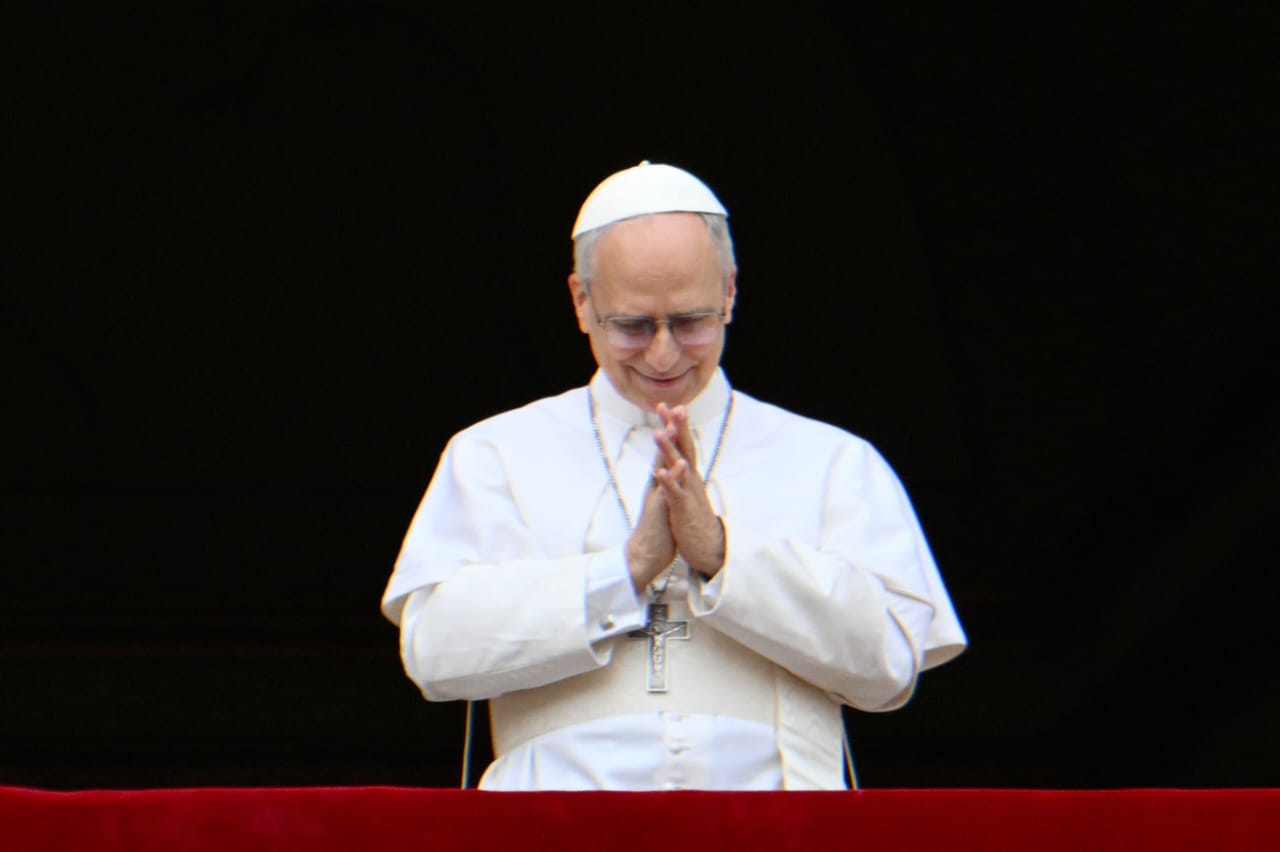AS a kid, many, many years ago, I always wondered who this “Bill Stickers” was as there were warning signs on fences and walls saying that “Bill Stickers Will Be Prosecuted” – poor guy, what had he done to deserve the wrath of the law? I eventually realised it was the people who stuck up paper posters advertising all sorts of things that the authorities were after.
Such posters were considered ugly and undesirable. Well his BIG brother has turned up in Namibia.I note from recent letters from well known legal eagles that his name is Bill Boards and he is still, in their view (and mine), ugly and undesirable – plus their placement along roads is designed to distract drivers and I find some of the content positively irritating.However, business rarely spends money without good purpose – such monstrosities must have some form of impact and as such Bill Boards highlights a much more interesting discussion – that of who controls what, and how in our avaricious world.It was the rise of the industrial machine and the use of technology, fuelled often by military needs for bigger and better methods of killing and its wasting assets when wars were off the menu, that triggered what we now know as the Industrial Revolution (or maybe earlier with the steam engine?).The Napoleonic Wars (1804 – 1815) are probably a reasonable start point of this process, a process that stimulated a shift of power away from land ownership, control of food production and, of course, the feudal poor towards the power of capital, organised production and migration of citizens to towns to engage in wage employment and dependency upon market-driven outputs for their sustenance.Social status moved from the old established land and agricultural base towards the “nouveau riche” and the holders of capital – the industrialists and the commercial providers.This was also the time of the social economists worried about the plight of man in a rapidly changing world (by their standards).The social hell of those times is well portrayed by Charles Dickens.Hegel shifted thinking in the early part of this period towards an acceptance that change was inevitable as opposed preservation of the status quo – the world was on the move.One “Tatekulu” Marx (Karl), a bit of a Hegel disciple, had latched onto this problem of change, with capital and its associated ownership of property becoming number one social evil; he started writing.Unfortunately he fell foul of the state media and publishing council in his native Germany and then France as he was critical of their political platforms and, like many since, repaired to the freedom of perfidious Albion – and to live amongst the Dickensian squalor of north London.He was more than a bit lucky as he teamed up with a wealthy member of the bourgeoisie, one Friedrich Engels, who bank-rolled him and proceeded to invent Communism which was encapsulated in the 12 000-word booklet “The Communist Manifesto” originally published in German in 1848.He was no doubt influenced by the surrounding squalor, the elitist politics of the time, the street kids, the cruel exploitation, violence against women, the rabid drunkenness of the hopeless, crime and a tyrannical but inefficient system of justice favouring the rich and the rich flaunting their fancy carriages, houses and newfound wealth.No equity.Marx’s ideas caught on and after a few false starts became the political ideology of many of social conscience – and in 1917 the Communists took over Russia – although the ideology had to be adjusted as it was a peasant revolt rather than that of the proletariat; Marx’s view that the peasants were that “dangerous class”, the social scum, did not go down too well so Leninism was born and Trotsky, the purist, silenced in Mexico! The history of both the Soviet Union and (later) China are well known – a reversion to agriculturalism, intellectual mono-cultures, mass cleansings of undesirables but great success in the development of missiles and tanks and the like – and massive armies.But as social / economic models they both failed in their own way and now have reverted to a recognition of capital and “sort of” competition.BUT the failure was one of planning and implementation – great plans but they failed to happen – food shortages, commodity shortages, social unrest with elitism and corruption and no-doubt influence from outside resulted in policy turnarounds.Both Russia and China are on the capitalistic roads in their own way.A failure of Communism? Or was it a corruption of the principles of Communism that caused failure? Or indeed did either revolution result in Communist states? Who knows.But it was a failure of central planning to deliver that was the failure.What is known is that, in parallel, the owners of productive resources were steaming ahead at such a rate the shortage economies became surplus economies; the machine was producing more than it could consume.This was exacerbated by periodic wars that had rapidly increased productive capacity which in times of peace was underutilised – horror of horror, profits were under threat.The owners of capital were not amused.This potential problem had been well appreciated for many years, probably from the time of Marx, and as the complexity of production rose it became apparent that the need was to match aggregate supply with demand together with a stabilisation of price.Thus the use of resources and financial returns could be optimised (maximised) and started the third phase of economic development – that of the technocracy, the melding of inputs with long-term planning fuelled by lots of money to buy and develop such skills – and the service industry! (Remember good old Joe Stalin wiped out his human capacity in these areas) The gestation period of the technocracy was slow but steady and probably came to the fore after the Great War and pushed to prominence after the 1929 market collapse and the subsequent Depression of the early 1930s.This was when the large corporations found themselves sitting with massive assets, abundant cheap labour and no markets; and as with all financial disasters the masses lose and the few make massive gains! Governments were essentially powerless – they had no money coming in.Enter “Knights on White Chargers” – the technocracy and their plans, the wealthy and their money and the new ideas of policy makers.John Maynard Keynes, a mathematician in the UK Treasury, consolidated the ideas of aggregate demand with many social desirables; the wealthy, who were well aware of the power now associated with their capital, saw opportunity, and; the technocracy were sitting in the wings with the plans and the capacity to make them work (!); the latter two also smelt that the way forward was to change the antagonistic relationship between business and government to one of mutual benefit and co-operation – the principle of accommodation.(See also John Kenneth Galbraith – ‘The New Industrial State’.) The time also provided the ideal opportunity to distort those most inconvenient basics of economics – the supply and demand curve, elasticity and the principle of consumer primacy – the principle that assumes that customer choice is based on rational economic preference.Such silliness! The best way is to have increasing aggregate demand, customer manipulation and adequate credit to ensure customers have the wherewithal to buy as directed.Equally material satisfaction and corporate loyalty will induce compliance and apathy such that the bumper sticker “I owe, I owe, it’s off to work I go” has relevance! A sort of happy neo-slavery? This is where globalisation and the WTO / EU is leading us, and beyond.The super-rich bourgeoisie, the wealthy proletariat and the peasants producing primary products in an open manipulated market – the “race to the bottom” and continuing poverty.And “Bill Boards”? He is just part of the process – which of course keeps the legal eagles in business! Is it real? When I hear athletic shoe sellers say that their product is “a media of communication” and a “carrier of culture” it seems we are “walking the talk” and have a “cultural footprint”.Seems real enough to me.Do we, as Namibians, want to sacrifice ourselves on the altar of globalisation? Or do we retain a degree of own decision-making power and control of our own destiny? Bill Boards is not going to go away.Who has the real power, the technocracy or the democratic power, government?Well his BIG brother has turned up in Namibia.I note from recent letters from well known legal eagles that his name is Bill Boards and he is still, in their view (and mine), ugly and undesirable – plus their placement along roads is designed to distract drivers and I find some of the content positively irritating.However, business rarely spends money without good purpose – such monstrosities must have some form of impact and as such Bill Boards highlights a much more interesting discussion – that of who controls what, and how in our avaricious world.It was the rise of the industrial machine and the use of technology, fuelled often by military needs for bigger and better methods of killing and its wasting assets when wars were off the menu, that triggered what we now know as the Industrial Revolution (or maybe earlier with the steam engine?).The Napoleonic Wars (1804 – 1815) are probably a reasonable start point of this process, a process that stimulated a shift of power away from land ownership, control of food production and, of course, the feudal poor towards the power of capital, organised production and migration of citizens to towns to engage in wage employment and dependency upon market-driven outputs for their sustenance.Social status moved from the old established land and agricultural base towards the “nouveau riche” and the holders of capital – the industrialists and the commercial providers.This was also the time of the social economists worried about the plight of man in a rapidly changing world (by their standards).The social hell of those times is well portrayed by Charles Dickens.Hegel shifted thinking in the early part of this period towards an acceptance that change was inevitable as opposed preservation of the status quo – the world was on the move.One “Tatekulu” Marx (Karl), a bit of a Hegel disciple, had latched onto this problem of change, with capital and its associated ownership of property becoming number one social evil; he started writing.Unfortunately he fell foul of the state media and publishing council in his native Germany and then France as he was critical of their political platforms and, like many since, repaired to the freedom of perfidious Albion – and to live amongst the Dickensian squalor of north London.He was more than a bit lucky as he teamed up with a wealthy member of the bourgeoisie, one Friedrich Engels, who bank-rolled him and proceeded to invent Communism which was encapsulated in the 12 000-word booklet “The Communist Manifesto” originally published in German in 1848.He was no doubt influenced by the surrounding squalor, the elitist politics of the time, the street kids, the cruel exploitation, violence against women, the rabid drunkenness of the hopeless, crime and a tyrannical but inefficient system of justice favouring the rich and the rich flaunting their fancy carriages, houses and newfound wealth.No equity.Marx’s ideas caught on and after a few false starts became the political ideology of many of social conscience – and in 1917 the Communists took over Russia – although the ideology had to be adjusted as it was a peasant revolt rather than that of the proletariat; Marx’s view that the peasants were that “dangerous class”, the social scum, did not go down too well so Leninism was born and Trotsky, the purist, silenced in Mexico! The history of both the Soviet Union and (later) China are well known – a reversion to agriculturalism, intellectual mono-cultures, mass cleansings of undesirables but great success in the development of missiles and tanks and the like – and massive armies.But as social / economic models they both failed in their own way and now have reverted to a recognition of capital and “sort of” competition.BUT the failure was one of planning and implementation – great plans but they failed to happen – food shortages, commodity shortages, social unrest with elitism and corruption and no-doubt influence from outside resulted in policy turnarounds.Both Russia and China are on the capitalistic roads in their own way.A failure of Communism? Or was it a corruption of the principles of Communism that caused failure? Or indeed did either revolution result in Communist states? Who knows.But it was a failure of central planning to deliver that was the failure.What is known is that, in parallel, the owners of productive resources were steaming ahead at such a rate the shortage economies became surplus economies; the machine was producing more than it could consume.This was exacerbated by periodic wars that had rapidly increased productive capacity which in times of peace was underutilised – horror of horror, profits were under threat.The owners of capital were not amused.This potential problem had been well appreciated for many years, probably from the time of Marx, and as the complexity of production rose it became apparent that the need was to match aggregate supply with demand together with a stabilisation of price.Thus the use of resources and financial returns could be optimised (maximised) and started the third phase of economic development – that of the technocracy, the melding of inputs with long-term planning fuelled by lots of money to buy and develop such skills – and the service industry! (Remember good old Joe Stalin wiped out his human capacity in these areas) The gestation period of the technocracy was slow but steady and probably came to the fore after the Great War and pushed to prominence after the 1929 market collapse and the subsequent Depression of the early 1930s.This was when the large corporations found themselves sitting with massive assets, abundant cheap labour and no markets; and as with all financial disasters the masses lose and the few make massive gains! Governments were essentially powerless – they had no money coming in.Enter “Knights on White Chargers” – the technocracy and their plans, the wealthy and their money and the new ideas of policy makers.John Maynard Keynes, a mathematician in the UK Treasury, consolidated the ideas of aggregate demand with many social desirables; the wealthy, who were well aware of the power now associated with their capital, saw opportunity, and; the technocracy were sitting in the wings with the plans and the capacity to make them work (!); the latter two also smelt that the way forward was to change the antagonistic relationship between business and government to one of mutual benefit and co-operation – the principle of accommodation.(See also John Kenneth Galbraith – ‘The New Industrial State’.) The time also provided the ideal opportunity to distort those most inconvenient basics of economics – the supply and demand curve, elasticity and the principle of consumer primacy – the principle that assumes that customer choice is based on rational economic preference.Such silliness! The best way is to have increasing aggregate demand, customer manipulation and adequate credit to ensure customers have the wherewithal to buy as directed.Equally material satisfaction and corporate loyalty will induce compliance and apathy such that the bumper sticker “I owe, I owe, it’s off to work I go” has relevance! A sort of happy neo-slavery? This is where globalisation and the WTO / EU is leading us, and beyond.The super-rich bourgeoisie, the wealthy proletariat and the peasants producing primary products in an open manipulated market – the “race to the bottom” and continuing poverty.And “Bill Boards”? He is just part of the process – which of course keeps the legal eagles in business! Is it real? When I hear athletic shoe sellers say that their product is “a media of communication” and a “carrier of culture” it seems we are “walking the talk” and have a “cultural footprint”.Seems real enough to me.Do we, as Namibians, want to sacrifice ourselves on the altar of globalisation? Or do we retain a degree of own decision-making power and control of our own destiny? Bill Boards is not going to go away.Who has the real power, the technocracy or the democratic power, government?
Stay informed with The Namibian – your source for credible journalism. Get in-depth reporting and opinions for
only N$85 a month. Invest in journalism, invest in democracy –
Subscribe Now!










